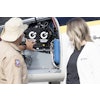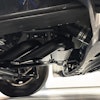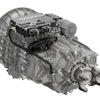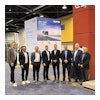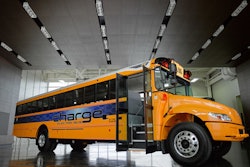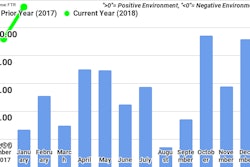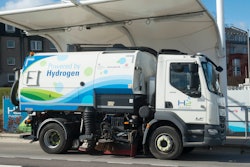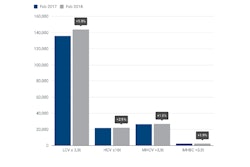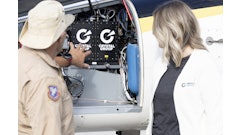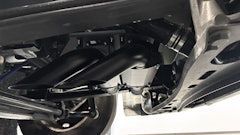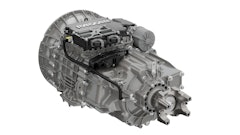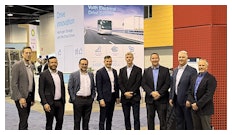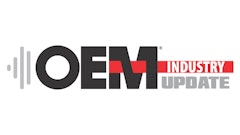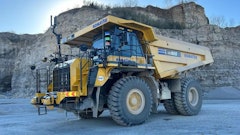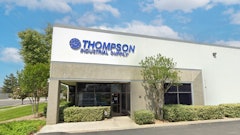New Flyer Industries Inc., the largest transit bus and motor coach manufacturer and parts distributor in North America, has announced its results for the 13-week period ended December 31, 2017 (2017 Q4) and the 52-week period ended December 31, 2017 (Fiscal 2017). Full audited financial statements and Management's Discussion and Analysis (the MD&A) are available at the company's website. Unless otherwise indicated, all monetary amounts in this press release are expressed in U.S. dollars.
Operating Results
Revenue from manufacturing operations for 2017 Q4 increased 4.9% compared to the 13-week period ended January 1, 2017 (2016 Q4). The increase in 2017 Q4 revenue primarily resulted from a 7.6% increase in total new transit bus, motor coach and cutaway deliveries compared to 2016 Q4 deliveries offset by a 4.5% decrease in the average selling price of new transit buses, motor coaches and cutaways resulting from a less favorable sales mix (which now includes cutaways). The suite of bus products of ARBOC Specialty Vehicles, LLC (ARBOC) have a substantially lower selling price than the average heavy-duty transit bus or motor coach. Revenue from manufacturing operations for Fiscal 2017 increased 6.5% compared to the 53-week period ended January 1, 2017 (Fiscal 2016). New transit bus, motor coach and cutaway deliveries during Fiscal 2017 increased 9.0% compared to Fiscal 2016 while the average selling price of new transit buses, motor coaches and cutaways per EU in Fiscal 2017 decreased 2.6% compared to Fiscal 2016.
Revenue from aftermarket operations in 2017 Q4 increased 6.7% compared to 2016 Q4. Revenue from aftermarket operations for Fiscal 2017 decreased 3.8% compared to Fiscal 2016, primarily a result of customers' reducing inventory levels, customer budgetary constraints and fleet modernization impacts. The decrease in Fiscal 2017 aftermarket operations revenue was also impacted by an extra week in 2016 as compared to 2017. Management also believes that the increase in new transit bus and motor coach sales to a few large customers in recent years contributed to increased fleet replacement, which has had a short term dampening effect on the aftermarket parts business.
Net earnings during 2017 Q4 increased by 83.2% compared to 2016 Q4, primarily as a result of improved earnings from operations and $27.0 million of income tax net recoveries as a result of the recent U.S tax reform, partially offset by an increase interest expense. This resulted in a 77.9% increase in net earnings per Share in 2017 Q4 compared to 2016 Q4. Similarly, net earnings for Fiscal 2017 increased by 53.2% and net earnings per Share increased 45.7%, compared to Fiscal 2016.
The return on invested capital (ROIC) during Fiscal 2017 of 15.8% increased compared to 14.3% during Fiscal 2016. Management believes that ROIC is an important ratio and tool that can be used to assess possible investments against their related earnings and capital utilization.
Adjusted EBITDA increased by 17.8% and 10.0% during 2017 Q4 and Fiscal 2017 respectively, compared to the 2016 corresponding periods, primarily as a result of the increase in manufacturing Adjusted EBITDA which more than offset the decrease in the aftermarket's Adjusted EBITDA.
Manufacturing Adjusted EBITDA increased primarily as a result of increased deliveries and improved margins. Contributors to the increase in margins in the period are due to cost savings synergies relating to the MCI acquisition and continued cost reductions achieved through the Company's Operational Excellence (OpEx) initiatives.
Margins vary significantly between orders due to factors such as pricing, order size, propulsion system and product type and components specified by the customer. Management cautions readers that quarterly Adjusted EBITDA can be volatile and should be considered over a period of several quarters.
The 2017 Q4 aftermarket operations Adjusted EBITDA decreased 9.2% compared to 2016 Q4, due to higher overhead and SG&A costs associated with the integration efforts of the New Flyer and MCI parts businesses into NFI Parts. Higher overheads cost will continue in 2018 until the parts business combination efforts are concluded, which ultimately is intended to result in savings from footprint consolidation, freight savings, management integration and systems integration. The company has announced it is closing a redundant parts distribution center in Hebron, KY, in July 2018.
Fiscal 2017 aftermarket Adjusted EBITDA decreased 9.0% compared to Fiscal 2016 primarily a result of a 3.8% decrease in sales volumes impacted by fleet modernization and inventory reduction efforts at major customers and a related 1.1% decrease in Adjusted EBITDA as a percentage of aftermarket revenue. Fiscal 2017 overhead and SG&A costs were higher due to the planning and start of the execution of the parts business integration efforts. The company is focused on maintaining and enhancing customer service levels through this transition and is also actively pursuing different revenue relationships with multiple customers such as part kits sales and vendor managed inventory relationships, which should help revenue and margins.
Liquidity
The 2017 Q4 net operating cash inflow of $7.4 million is the result of $50.1 million of net cash earnings offset by an investment in non-cash working capital of $42.7 million. The net operating cash inflow for 2016 Q4 of $34.6 million resulted from $58.2 million of net cash earnings offset by an investment in non-cash working capital of $23.6 million.
The Fiscal 2017 net operating cash inflow of $172.1 million is the result of $179.1 million of net cash earnings offset by an investment in non-cash working capital of $7.1 million. The net operating cash inflow for Fiscal 2016 of $149.7 million resulted from $172.1 million of net cash earnings offset by an investment in non-cash working capital of $22.4 million.
The company generated Free Cash Flow of C$74.4 million during 2017 Q4, an increase of 65.0% compared to C$45.1 million in 2016 Q4, primarily a result of the notable decrease in current income taxes during 2017 Q4. The company declared dividends in 2017 Q4 of C$20.5 million, an increase of 37.6% compared to C$14.9 million in 2016 Q4. The amount of dividends declared increased in 2017 Q4, primarily as a result of the conversion of the convertible debentures into Shares and the 36.8% annual dividend rate increase announced by the company in May 2017.
The company generated Free Cash Flow of C$206.9 million during Fiscal 2017 which decreased 4.3% compared to C$216.3 million in Fiscal 2016 primarily resulting from increased cash capital expenditures which offsets the increase in Adjusted EBITDA generated in Fiscal 2017. The company's declared dividends in Fiscal 2017 of C$76.1 million increased 40.9% compared to C$54.0 million in Fiscal 2016. The Fiscal 2017 Free Cash Flow payout ratio (declared dividends divided by Free Cash Flows) is 36.8% compared to 25.0% in Fiscal 2016.
The December 31, 2017 liquidity position of $222.3 million relates to amounts available under the revolving portion of the Credit Facility (the Revolver) compared to a liquidity position of $349.6 million at October 1, 2017. The liquidity has decreased $127.3 million during 2017 Q4 primarily as a result of funding the December 1, 2017 acquisition of ARBOC with borrowings from the Revolver. As at December 31, 2017 there were $102.0 million of direct borrowings, $9.9 million of bank indebtedness and $8.8 million of outstanding letters of credit related to the $343.0 million Revolver.
PPE cash expenditures increased 102.9% and 113.8% during 2017 Q4 and Fiscal 2017 respectively, compared to the 2016 corresponding periods primarily as a result of investments to fund a variety of initiatives such as: MCI's facility improvements; the company's recently opened Vehicle Innovation Center in Anniston, AL; OpEx activities; insourcing and continuous improvement programs.
The company's total leverage ratio (defined as net indebtedness divided by Adjusted EBITDA) of 1.84 at December 31, 2017 improved from the ratio of 1.94 at January 1, 2017. As at December 31, 2017, the company was in compliance with its banking covenant that requires the total leverage ratio to be less than 3.75.
Outlook
Management estimates that the heavy-duty bus manufacturers delivered approximately 6,330 EUs in 2017 to Canadian and U.S. transit operators, which is a 9% increase from the total delivered in 2016. Similarly, management estimates that 2,470 motor coaches were delivered in Canada and the U.S. during 2017.
Management estimates that New Flyer's market share of heavy-duty transit buses delivered in Canada and the United States for 2017 was approximately 43%, compared to the estimated market share of 44% for 2016. As well, the company estimates that MCI's 2017 market share of motor coaches delivered in Canada and the U.S has increased from 39-43%.
Management continues to expect bus procurement activity throughout the U.S. and Canada will remain stable through 2018 based on an aging fleet, overall economic conditions, expected customer fleet replacement plans, and active or anticipated procurements.
As the population ages and ease of access becomes more of a focus, management also believes the demand for low-floor cutaway and medium-duty buses with greater accessibility will grow from its current level of 5% of the total cutaway market, following the migration that occurred in the heavy-duty transit bus space. Management estimates that ARBOC delivered 64% of all the low-floor cutaway buses that were delivered in 2017.
The company’s master production schedule combined with current backlog and orders anticipated to be awarded by customers under new procurements is expected to enable the company to deliver approximately 4,350 EUs during the 52-week period ended December 30, 2018 ("Fiscal 2018") with production rates varying from quarter to quarter due to product mix and award timing.
With a current healthy production schedule, low leverage, and solid liquidity, management continues to be focused on investments to enhance competitiveness and estimates PPE expenditures for Fiscal 2018 to be in the range of approximately $63 to $73 million. This estimate is approximately $8 million higher than what was originally disclosed, as the revised range includes amounts that were planned for Fiscal 2017 but were carried forward to Fiscal 2018 and also as a result of a better understanding of the PPE investments needed in the newly acquired composite businesses.
With respect to parts, ongoing surveys and discussions with large parts customers continue to indicate a number of market effects including: customers' inventory reduction strategies, budget constraints and fleet modernization efforts. Although part sales remain difficult to forecast, management expects that the parts market will remain relatively stable in 2018, but may experience quarter-to-quarter volatility as is typical for this segment of the business.
U.S. Tax Reform
As a result of U.S. Public Law 115-97, commonly referred to as the Tax Cuts and Jobs Act, which was enacted on December 22, 2017 and generally effective for tax years beginning after December 31, 2017, the company expects a reduction in its consolidated effective tax rate (ETR). The company's consolidated ETR prior to U.S. tax reform ranged from 32% to 36%, reflecting benefits related to interest deductions and the domestic production activities deduction which will no longer be available. Although the U.S. federal statutory tax rate decreased from 35% to 21%, the company's ETR for 2018 and subsequent years is expected to be in the range of 29-31%. This range includes U.S. state taxes which brings the combined U.S. federal and state statutory tax rate to approximately 27% and the impact related to the fact that the company's most significant Canadian operating entity (New Flyer Industries Canada ULC, an entity taxed in both the U.S. and Canada) will not be able to fully utilize foreign tax credits as the Canadian tax rate is now higher than the U.S. Federal tax rate.
The Fiscal 2017 ETR decreased when compared to Fiscal 2016, primarily a result of the net impact of the revaluation of deferred tax balances due to the recently announced lowering of the U.S. corporate federal tax rate which contributed to an income tax recovery of $33.0 million offset by the write-down of the foreign tax credit carryover pool of $6.0 million, for a net income tax recovery of $27.0 million. These two items decrease the company's Fiscal 2017 ETR by 11.2%.
North American Free Trade Agreement (NAFTA)
The company's manufacturing facilities operate in an integrated manner with parts and components shipping in both directions over the Canadian/U.S. border. The company's supply chain has been established to ensure compliance with the more stringent U.S. federal Buy America requirements for rolling stock funded by Federal Transit Administration grants. In the case of both New Flyer and MCI public customers, a certain quantity of bus and motor coach shells are manufactured in Canada and shipped for final assembly in the United States. In the case of private sector sales, all MCI motor coaches are manufactured in Canada. ARBOC manufacturers the cutaways in the United States and sells to customers in the U.S. and Canada.
Under the current NAFTA agreement, all shells and finished buses and coaches move across the border free of any duties. Nearly all the purchased components sourced in the NAFTA region meet the current 62.5% regional content requirement and therefore also move across the border free of any duties. The company today pays immaterial tariffs for non-NAFTA supply.
Any amendments that would impose duties on parts, shells and finished buses and coaches could have a financial impact given materials comprise 69% of manufacturing costs and complete buses and coaches are imported to each country on a regular basis. Management continues to closely monitor NAFTA negotiations and is developing contingency plans to mitigate should changes occur to the current agreement.
Corporate Name Change
The board of directors of the company has resolved to change the company’s name to "NFI Group Inc." to better reflect the multi-platform nature of its business that now includes buses built by New Flyer, MCI, ARBOC and parts sold by NFI Parts. The company intends to seek the approval of its shareholders for the name change at the next annual and special meeting of shareholders scheduled to be held on May 10, 2018.
